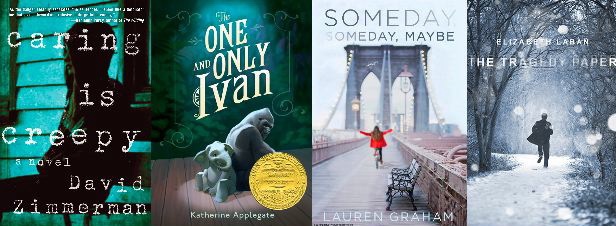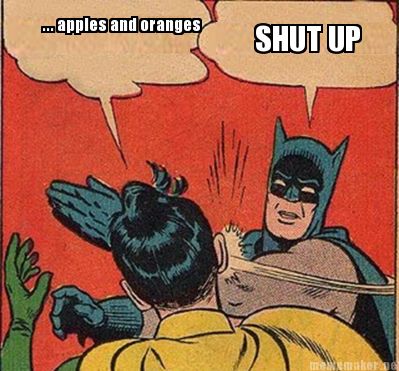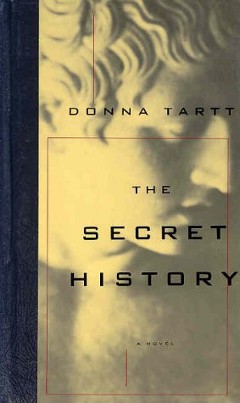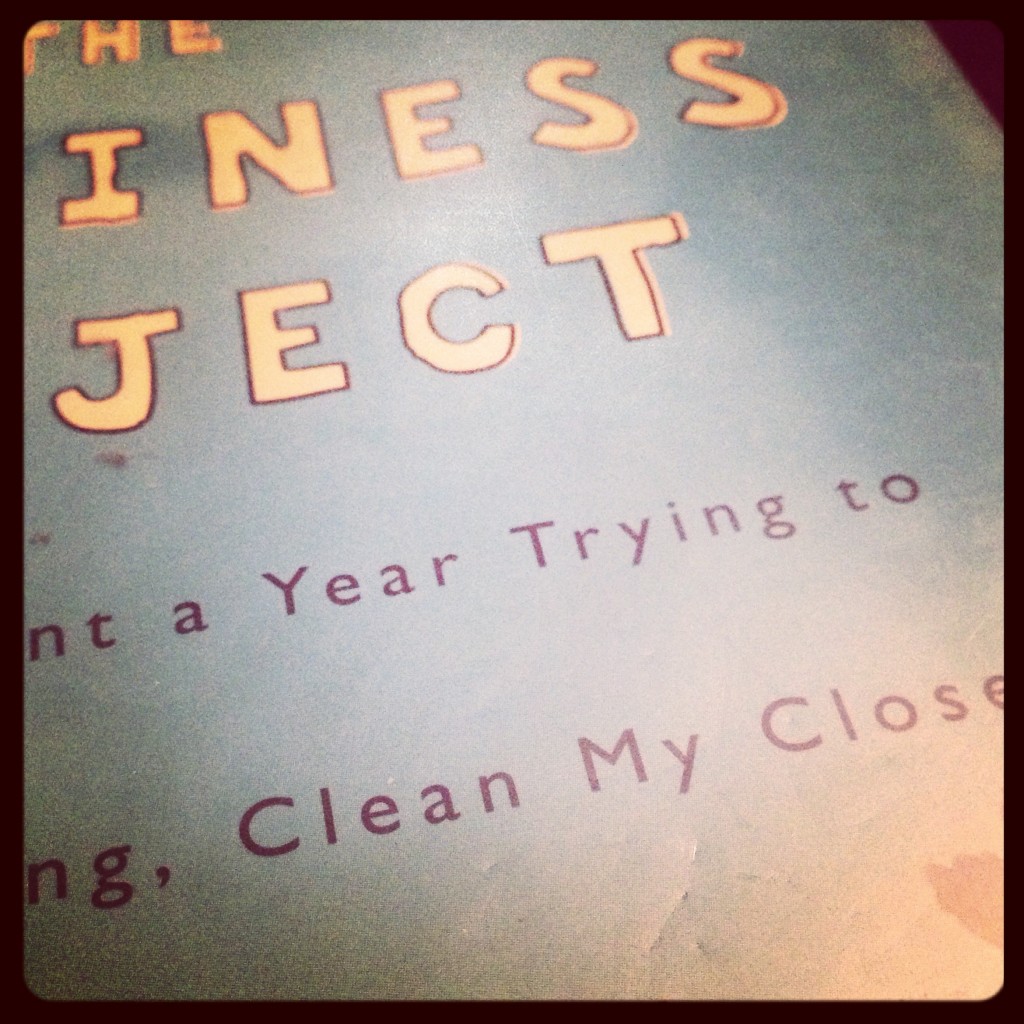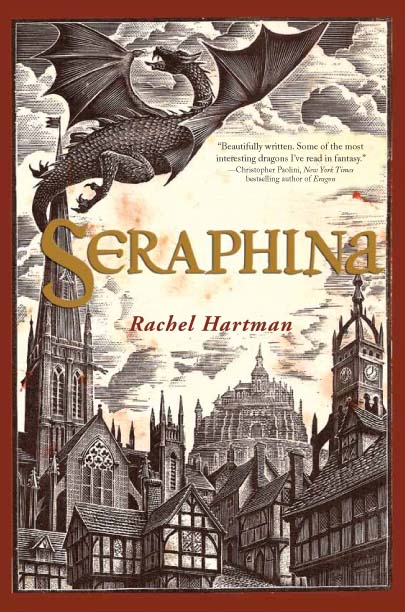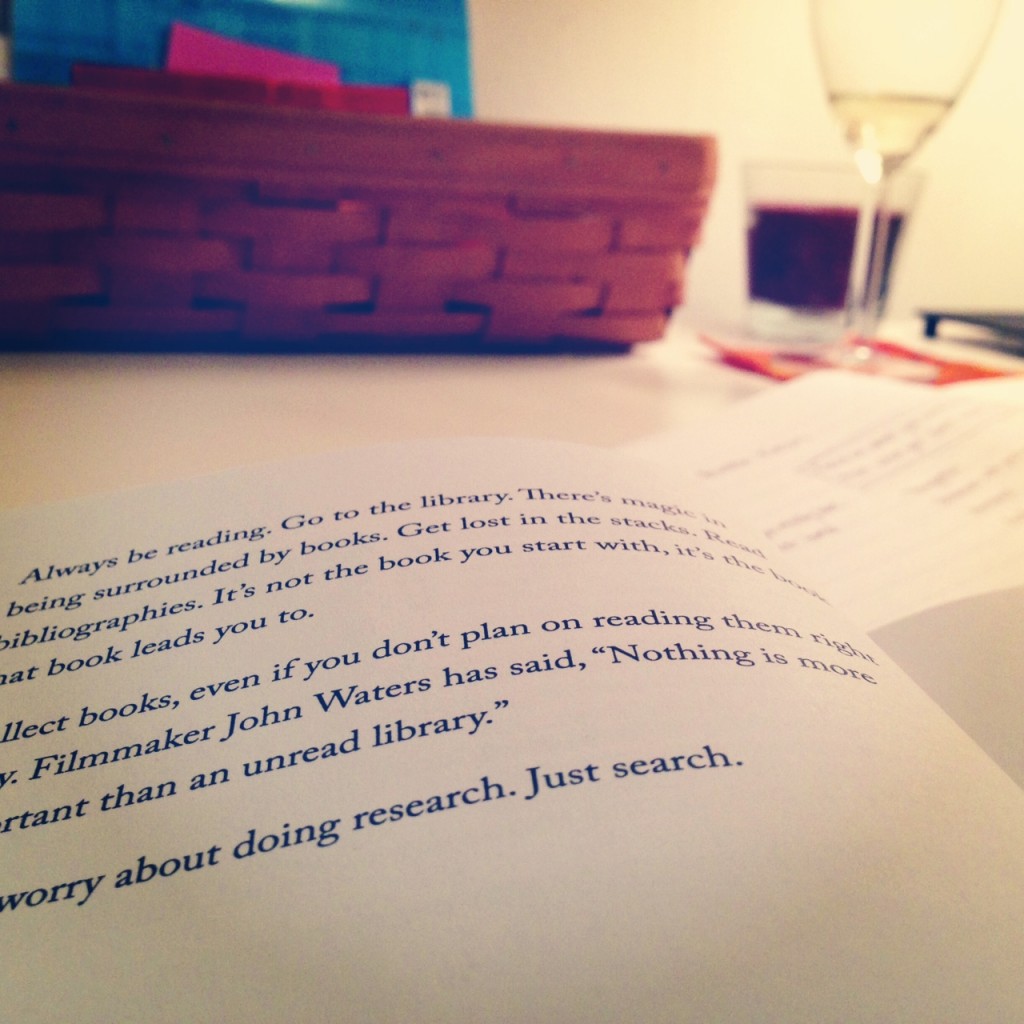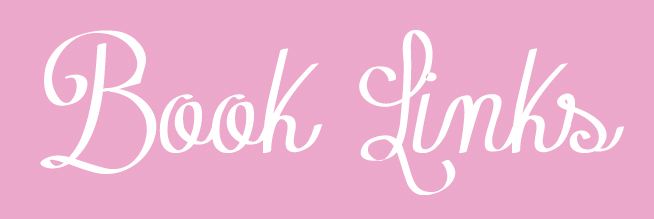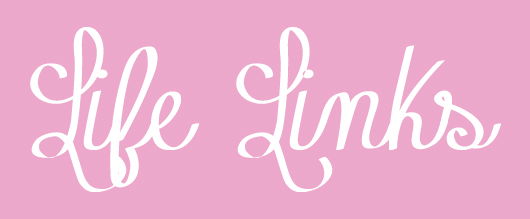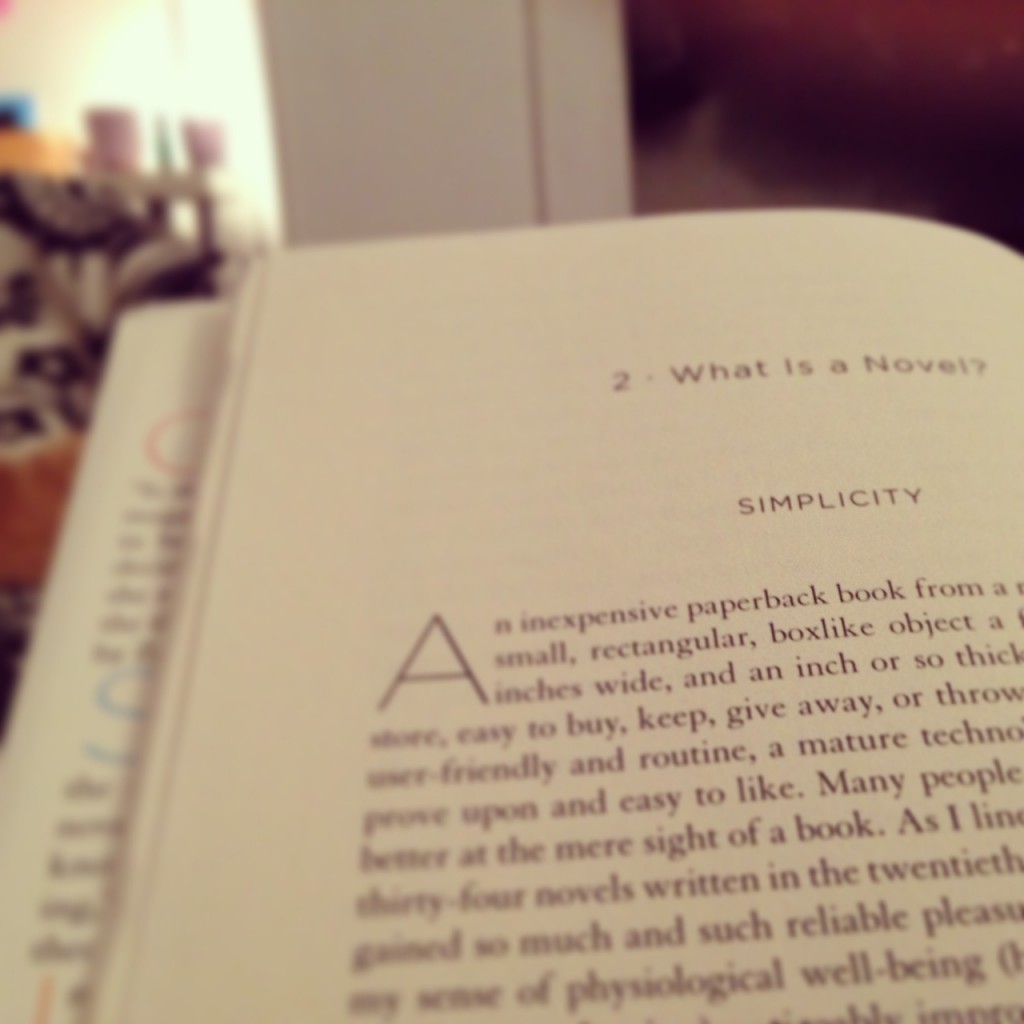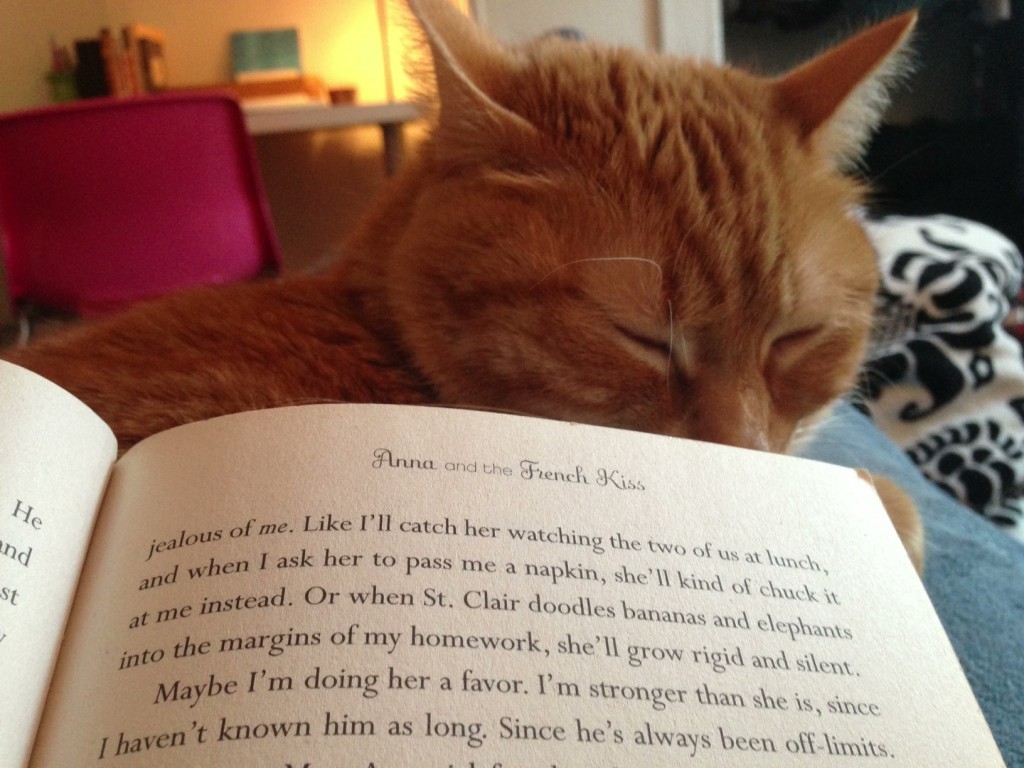Hey guys: it’s almost February. How are your New Year’s Resolutions going? I am making my bed every day and working on my secret resolutions and have read 12 books toward my perennial goal of reading 100 books in 2013. I try to read 100 books every year. It’s a nice round number, high enough that I push myself to read more but not too high that I go crazy trying to finish. Some years I easily read 130 – others, I squeak in #100 on December 31st.
Are you trying to read more this year? Are you already feeling anxious about your goal? If so, let me share some Reading Pro-Tips with you! There are a bazillion ways to squeeze more reading into your days and nights; here are a few I employ on a regular basis.
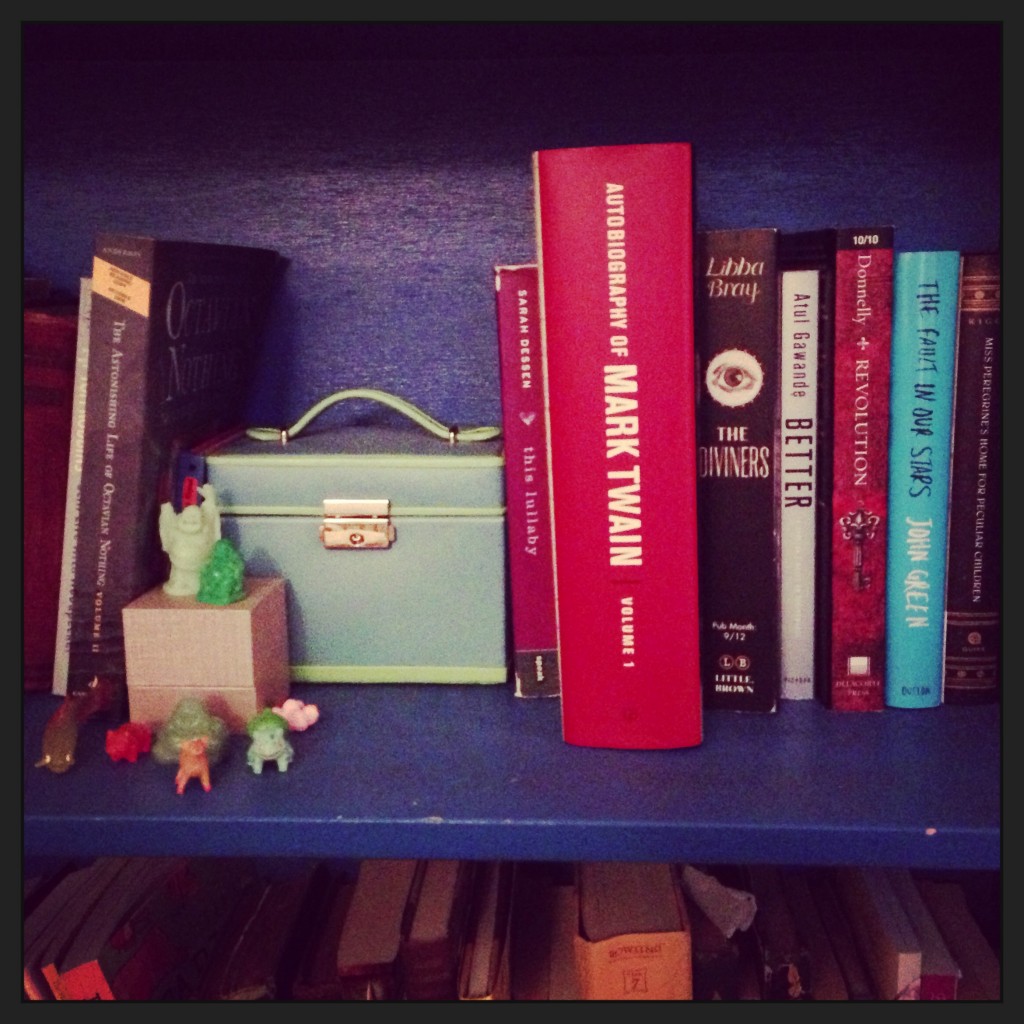
Set up “reading triggers”
Wanting to read more is kind of like wanting to exercise more or drink more water or any other number of a do-goody kind of ways to change your life. And what’s the best way to make these changes? Build habits. A good way to build a reading habit is to set up “triggers” – habits you already have or everyday activities that you can just… uh… add a book to.
Read a little when you first get up in the morning, or read a little right before bed. Read when you get out of the shower but haven’t committed to putting on clothing yet. When I was in college, I missed reading books for fun, so I decided that when I was a few minutes early to class, instead of trying to cram in last minute studying (like that works anyway…) I would read a book. A few pages here and there eventually adds up to a book, and then there’s the chance that when you start, you’ll be sucked in and want to read more. Hopefully not *while* class is in session… but I wouldn’t judge you.
Read for a few minutes before you are allowed to watch TV/get on the computer
This is like a trigger but in reverse – any time you have the urge to surf the Internet or turn on some mindless TV reruns, remind yourself that Books > Better than all that crap. Not that you need to quit all that stuff, you’re just delaying for a few minutes – read a chapter before partaking in electronic media.
Sometimes I do this and end up sitting with my laptop open in lap, my book open and covering the screen. This is weird and burns out my battery. But it gets the job done.
Carry a book with you
Dumbest advice ever… but you should do it. Every time I go to the DMV or get stuck on a train or on a long bus ride or a delayed flight, I just feel so sad for everyone who is just abjectly miserable because nobody likes waiting. I am also just confused as to why these people didn’t bring a book. Just bring a book! Put it in your purse! If you’re a dude, stick a paperback in your back pocket and make all the nerdy girls on the train stare at you lasciviously. It’s easy, and the next time you get trapped in a really long Starbucks line you’ll be the only person without the urge to stab people.
(You may also need to pretend you don’t own a smartphone with games and Instagram for this tactic to work. Good luck!)
(Also, you have to be the kind of person who likes to carry a lot of crap around with you at all times. A beast of burden, if you will.)
Read different books at different times
This is Advanced Level Reading, and might not work for everyone. However, it’s a habit that works very well for me, so if you are a person who gets bored halfway through a book, you might give it a try.
Before grad school, when I was living in my parents’ large home, I would keep different books in different parts of the house – a book in the family room for reading during breakfast, a book in my bedroom to read before bed, a book by the computer to read while waiting for The Sims 2 to load. Then there was an audio book in the car, a book in my purse to read at lunch at work, a book that was bendable enough to shove in the magazine holder on the elliptical machine in my gym bag. Okay, this is ridiculous, but also, practical. You will always have the book you need in the format you need where you need it.
Now, I prefer to keep 2-3 books in a rotation, usually two new ones I can alternate depending on my mood, and a re-read I’ll dip into for a few days and then forget about for a week or two. An audiobook for going to sleep and doing chores. Again, this might be the most repellant idea you’ve ever heard, but I like the feeling that if I want to read, I can read anything – not just get stuck reading something that I’m not enjoying. It keeps reading fresh.
Read while walking
I probably shouldn’t recommend this because it is dangerous, but I have definitely done it and have not died yet. It’s not as hard as you think – your eyes adjust. At one point, I could read books while running on the treadmill.
What I don’t recommend is reading while walking while wearing sunglasses without your contacts when your path includes many driveways and cross streets.
But, do what you got to do. Read at your own risk, yo.
Try an audiobook
There are so many things you can do while listening to an audiobook. So. Many. Here are twelve to get you started:
1) Drive
2) Exercise
3) The dishes
4) Fold your laundry
5) Play with Legos
6) Walk to class or work
7) Fall asleep
8 ) Knit
9) Quilt
10) Do a jigsaw puzzle
11) Take a bath (I wouldn’t do it, but I live with someone who does)
12) Clean out your email inbox
Audiobooks are the multitasker’s delight. If you haven’t tried one yet, I would recommend the following tactic: check out 3 or 4 from the library at once because you will probably hate at least two of the narrators.
Read something you… ah… want to read
Look, guys. If you are going to read in 2013, read something you actually want to read! Nothing breaks my heart more than when people want to get back into reading and think a good place to start is with those classics that you kinda read in high school. Don’t do it. Start somewhere else! Re-read a favorite from the last time you read books (even if it was when you were nine). Read something brand new. Read a cult classic. Ask a librarian for a recommendation. Read a crappy romance, some fluffy chick-lit, read Twilight, it doesn’t matter. Just don’t start the year off forcing yourself through something you aren’t enjoying – get the wheels rolling first, save Gatsby for the second half of the year.
If you can pull this one off – find a book that doesn’t feel like work, that pulls you along, that calls to you from your purse or your bedside table – then the rest of these suggestions will fall into place, or you won’t need them anymore because you’ll just be reading.
